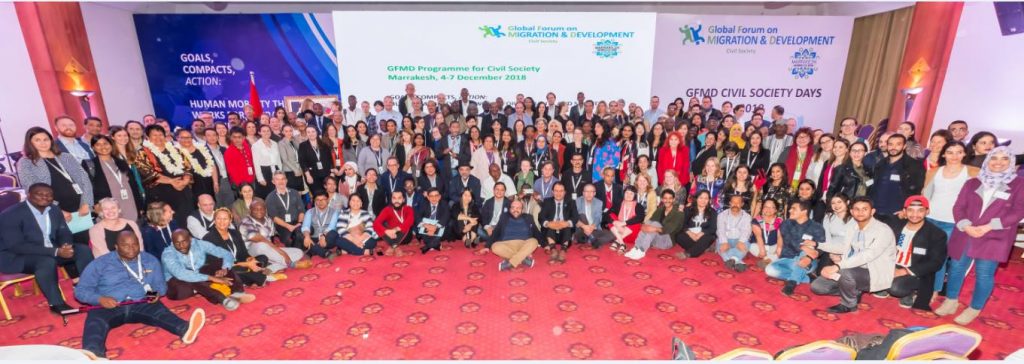
On the occasion of the International Migrants Day on 18 December, KISA together with the entire civil society for defending human rights worldwide welcomes the adoption of the UN Global Compact for Migration during the Intergovernmental Conference of some 150 states, which was held in Marrakesh in Morocco, on 10-11 December 2018.
The Global Compact is the first inter governmentally negotiated agreement after the adoption of the New York Declaration for Refugees and Migrants by the UN General Assembly in September 2016.
In the context of today’s political situation, with the upsurge of populism and nationalism, the mainstreaming and normalisation of racism and hate speech, the anti-immigrant narrative and Trump’s politics of a wall at the borders with Mexico but also EU’s ‘Fortress Europe’, the Global Compact constitutes a significant step towards the right direction. The Global Compact includes a series of components which, if implemented, will provide a framework for the sufficient recognition, protection and safeguarding of migrants’ human rights with special provisions for children, women and persons with disabilities.
In spite of the positive elements, the Global Compact presents some serious deficits and weaknesses which have been pointed out and criticised by numerous NGOS during meetings and discussions among representatives of the civil society, governments and other stakeholders, which took place prior to the adoption of the Global Compact, in the period 4-8 December in Marrakesh, and during which KISA was represented by its Executive Director, Doros Polykarpou.These meetings were organised by the Global Forum for Migration and Development and People’s Global Action Coalition for Migration, Development and Human Rights.
Among the most significant weaknesses and issues of the Global Compact is its non-binding nature, a fact which essentially renders it a political declaration of principles that will require many and painstaking efforts as well as strong political will to implement it. An equally important factor for the successful implementation of the Global Compact is the effective coordination of the actions, policies and measures envisaged. Assigning this coordination to the International Organization for Migration causes worry and concern to civil society since so far IOM’s activity has been substantially limited to the dubious “voluntary” return programme.
However,the most important obstacle to be faced by the Global Compact, and which will deem whether it will be established as another declaration of wishful thinking or as an effective means for the achievement of its aims towards the effective protection and defence of the rights of migrants, derives from the continued rise of extreme right-wing, nationalist and neo-fascist parties and movements which have linked the financial crisis with migration and refugee flows. AfterUS’s withdrawal from the negotiations of the Global Compact in 2017, 15countries refused to adopt the Global Compact despite having participated in the negotiation process to the end. 11 of which are EU member states, most of whose governments embrace extreme right and / or neo-fascist ideology.
Despite the fact that the response of the Republic of Cyprus has been positive, it nevertheless remains silent on the importance of the Global Compact and its willingness to participate in any way in its implementation.
In comparison to other EU member states, which have participated more substantially and to the highest level in the adoption of the Global Compact,such as German Chancellor Angela Merkel, whose speech at the Intergovernmental Conference was applauded, the Cypriot government chose to be represented by a diplomatic official.
Inlight of the adoption of the Global Compact for Migration and on the occasion of the International Migrants Day, KISA calls on the Republic of Cyprus:
- To immediately proceed to a structured dialogue with all stakeholders, including civil society organizations, with a view to developing a coherent action plan for the implementation of the Global Compact as well as measures and actions to monitor and evaluate its implementation.
- To replace the current migration model and launch a consultation process towards the adoption of a migration mode and policy based on the multicultural nature of modern societies and the principles of respect for human rights.
- To develop policies for the substantial integration of migrants and their equal participation in Cypriot society.
- To develop an integrated plan to curb and combat discrimination, racism, racist violence, hate speech and hate crimes.
- To take all necessary measures, including legislative, to ensure that migrants have equal access to economic and social rights, such as public health, the benefits of their contributions to social security funds, the benefit policies, etc.
Steering
Committee
[1] http://undocs.org/en/A/CONF.231/3




